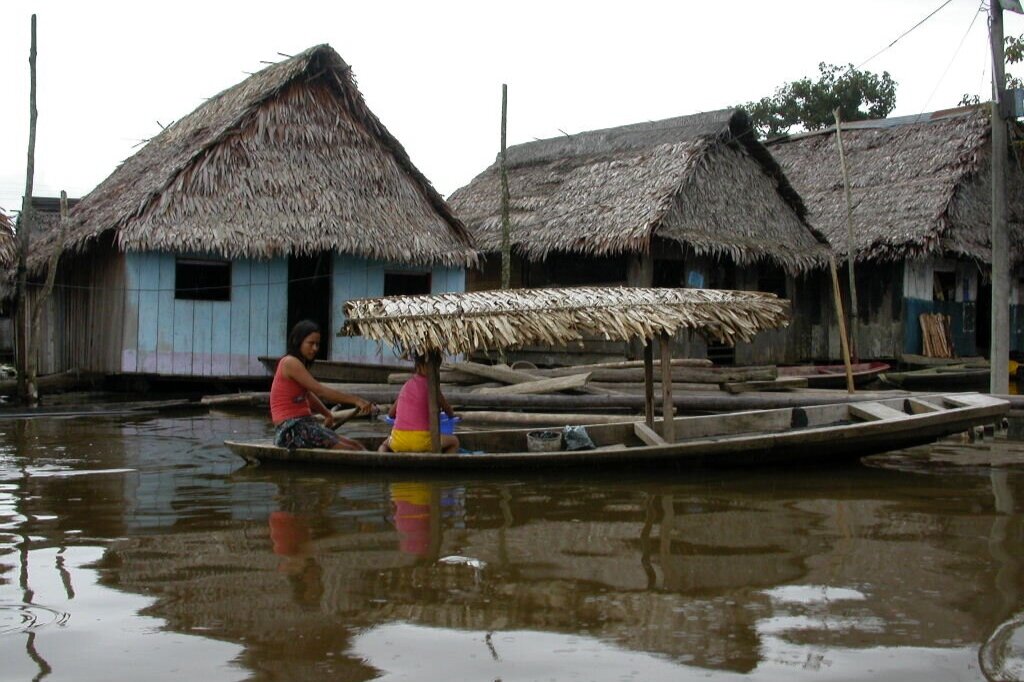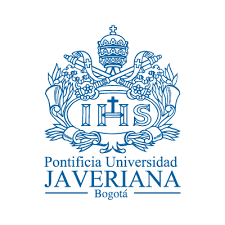
Active Projects
The Amazon Waters Initiative
Our team is part of the Amazon Waters Initiative, which aims to co-produce and compile knowledge about fish and aquatic ecosystems with riparian human communities across the Amazon Basin. We ask: Where and when do fish migrate in the Amazon? And, what are the environmental conditions associated with those migrations, especially water quality and water quality?
As part of this effort, we are collaborating with a conservation technology start-up, Conservify, and numerous Amazonian communities on the design and implementation of a low-cost, high-tech monitoring kit that measures water quality, water level, and climatic conditions. Simultaneously, the Cornell Lab of Ornithology has adapted their eBird platform to allow for tracking of fishes, through a new application called ICTIO. Overall, these efforts aim to improve scientific understanding of Amazonian freshwater systems, drawing on the local knowledge and observations of thousands of people across the Amazon.

Leading Researchers
Amazon Publications:
• Anderson, E.P., Encalada, A.C., Couto, T.B.A. et al. A baseline for assessing the ecological integrity of Western Amazon rivers. Nature Commun Earth Environ 6, 623 (2025). https://doi.org/10.1038/s43247-025-02530-8
• Jenkins, C.N., Athayde, S., Beveridge, C.F., Correa, S.B., Espinoza, J.-C., Heilpern, S.A., Herrera-R, G.A., Victoria-Lacy, L.*, Olivas, P., Oliveira, A., Piland, N.C., Utsunomiya, R. and Anderson, E.P. (2025), Global importance of Amazonian freshwaters. Frontiers in Ecology and the Environment e2868. https://doi.org/10.1002/fee.2868
• Athayde, S., Utsunomiya, R., Victoria-Lacy, L., Beveridge, C., Jenkins, C. N., Laufer, J., Heilpern, S., Olivas, P., & Anderson, E. P. (2025). Interdependencies between Indigenous peoples, local communities, and freshwater systems in a changing Amazon. Conservation Biology, 39, e70034. https://doi.org/10.1111/cobi.70034
• Sue Jackson, Natalia C. Piland, Emma Woodward, Patricia McTaggart, Alaka Wali, Ana A. Lemos, Diana Alvira Reyes, Juliana Lins, Aloisio Cabalzar, LuLu Victoria-Lacy, Michael Douglas, Rebecca E. Tharme, and Elizabeth P. Anderson. 2025. Understanding temporality in the lives of rivers and riverine human communities through seasonal calendars. Freshwater Science 44:2,239-250 https://doi.org/10.1086/735837
• Natalia C. Piland, Claire F. Beveridge, João V. Campos-Silva, Carlos Cañas, Sandra B. Correa, Thiago B.A. Couto, Andrea C. Encalada, Daniel Escobar-Camacho, Silvia López-Casas, Benjamin Webb, Elizabeth P. Anderson, Chapter 8 - Rivers from the Western Amazon, Editor(s): Manuel A.S. Graça, Marcos Callisto, Franco Teixeira de Mello, Douglas Rodríguez-Olarte, Rivers of South America, Elsevier, 2025, Pages 279-333, ISBN 9780128234297. https://doi.org/10.1016/B978-0-12-823429-7.00015-X.
• C.F. Beveridge, J. Espinoza, S. Athayde, S.B. Correa,** T.B.A. Couto**, S.A. Heilpern, C.N. Jenkins, N.C. Piland, R. Utsunomiya, S. Wongchuig, & E.P. Anderson, The Andes–Amazon–Atlantic pathway: A foundational hydroclimate system for social–ecological system sustainability, Proc. Natl. Acad. Sci. U.S.A. 121 (22) e2306229121, https://doi.org/10.1073/pnas.2306229121 (2024).
• Couto, T. B. A., Jenkins, C. N., Beveridge, C. F., Heilpern, S. A., Herrera-R, G. A. *, Piland, N. C., Leal, C. G., Zuanon, J., Doria, C. R. C., Montoya, M., Varese, M., Correa, S. B., Goulding, M., & Anderson, E. P. (2024). Translating science into actions to conserve Amazonian freshwaters. Conservation Science and Practice, 6(11), e13241. https://doi.org/10.1111/csp2.13241
• Herrera-R, G. A.*, Heilpern, S. A., Couto, T. B. A., Victoria-Lacy, L. *, Duponchelle, F., Correa, S. B., Farah-Pérez, A. *, López-Casas, S., Cañas-Alva, C. M., Doria, C. R. C., and Anderson, E. P. 2024. A synthesis of the diversity of freshwater fish migrations in the Amazon basin. Fish and Fisheries, 25, 114–133. https://doi.org/10.1111/faf.12795
• Fernandes S, Couto TBA*, Ferreira M, Pompeu PS, Athayde S, Anderson EP, Fernandes GW. Conserving Brazil's free-flowing rivers. Science. 2023. 379(6635):887. https://www.science.org/doi/10.1126/science.adi9117
• Correa, S.B., P. van der Sleen, S.F. Siddiqui, J.D. Bogotá-Gregory, C. Arantes, A. Barnett, T.B.A. Couto, M. Goulding, and E.P. Anderson. 2022. Biotic indicators for ecological state change in Amazonian floodplains. Bioscience 72(8):753-786. https://doi.org/10.1093/biosci/biac038
• Jackson, S., E.P. Anderson, N.C. Piland, S. Carriere, L. Java, and T.D. Jardine. 2022. River rhythmicity: A conceptual means of understanding and leveraging the relational values of rivers. People and Nature 2022:00:1-14. https://doi.org/10.1002/pan3.10335
• Prestes L., Barthem R., Mello-Filho A., Anderson E.P., Correa S.B., Couto T.B.D., et al. 2022. Proactively averting the collapse of Amazon fisheries based on three migratory flagship species. PLoS ONE 17(3): e0264490. https://doi.org/10.1371/journal.pone.026449
• Flecker, A.S. et al. 2022. Reducing adverse impacts of Amazon hydropower expansion. Science 375:753-760. PDF. Companion article in Science: Holtgrieve, G.W. and M.E. Arias. 2022. Optimizing Amazonian dams for nature. Science 375:714-15. PDF
• Science Panel for the Amazon - Assessment Report, 2021. PDF
• Duponchelle, F., V.J., Isaac, C. Rodrigues Da Costa Doria, P.A. Van Damme, G.A. Herrera‐R, E.P. Anderson, R.E. Cruz, M. Hauser, T.W. Hermann, E. Agudelo, and C. Bonilla‐Castillo, 2021. Conservation of migratory fishes in the Amazon basin. Aquatic Conservation: Marine and Freshwater Ecosystems, 31(5), pp.1087-1105. PDF
• Siddiqui, S.F., X. Zapata‐Rios, S. Torres‐Paguay, A.C. Encalada, E.P. Anderson, M. Allaire, C.R. da Costa Doria, and D.A. Kaplan, Classifying flow regimes of the Amazon basin. Aquatic Conservation: Marine and Freshwater Ecosystems. PDF
• Anderson, E.P., T. Osborne, J.A. Maldonado-Ocampo, M. Mills-Novoa*, L. Castello, M. Montoya, A.C. Encalada, and C.N. Jenkins. 2019. Energy development reveals blind spots for Amazon ecosystem conservation. Frontiers in Ecology and the Environment 17(9):521-29. PDF
• Encalada, A.C., A.S. Flecker, N.L. Poff, E. Suarez, G.A. Herrera-R., B. Ríos-Touma, S. Jumani*, E.I. Larson, and E.P. Anderson. 2019. A global perspective on tropical montane rivers. Science 365:1124-29. PDF
• Anderson, E. P., Jenkins, C. N., Heilpern, S., Maldonado-Ocampo, J. A., Carvajal-Vallejos, F. M., Encalada, A. C., … Tedesco, P. A. 2018. Fragmentation of Andes-to-Amazon connectivity by hydropower dams. Science Advances, 4(1). PDF | Companion article in Science: Fraser, B. 2018. Dams nudge Amazon’s ecosystems off-kilter. Science 359:508-09. PDF
• Wu, X., J. Gomes-Selman, Q. Shi, Y. Xue, R. García-Villacorta, E.P. Anderson, S. Sethi, S. Steinschneider, A. Flecker, and C.P. Gomes. 2018. Efficiently Approximating the Pareto Frontier: Hydropower Dam Placement in the Amazon Basin. Proc. Thirty-Second AAAI Conference on Artificial Intelligence (AAAI-18), New Orleans, LA, USA, 2–7 February 2018; pp. 849–858. PDF
• Tognelli, M.F., Anderson, E.P., Segura, L.F.J., Correa, V., Maldonado-Ocampo, J.A., Vallejos, F.M.C., Rivadeneira, J.F., Lasso, C.A., Duarte, S., Cox, N.A., Hidalgo, M., Sarmiento, J., Velásquez, M.A. & Navarro, F.A.V. 2019. Assessing conservation priorities of endemic freshwater fishes in the Tropical Andes region. . Aquatic Conservation: Marine and Freshwater Systems 1–10. PDF
• Jimenez-Segura, L.F., E.P. Anderson, and >15 coauthors. 2016. Ichthyofauna of the Tropical Andes. Pp: 23-56 in: Tognelli, M. et al. (eds). Estado de la Conservación de la Biodiversidad de Agua Dulce en los Andes Tropicales. Gland, Suiza, Cambridge, UK, and Arlington, USA. International Union for the Conservation of Nature.
• Anderson, E.P. and J.C. Veilleux. 2016. Cultural costs of tropical dams. Science 352:159. PDF
• Auerbach, D., B. Buchanan, A. Alexiades, E.P. Anderson, A.C. Encalada, E. Larson*, R. McManamay, G. Poe, T. Walter, and A. Flecker. 2016. Towards rapid, rigorous and reproducible ecohydrologic classification of data scarce regions. Ecohydrology 9:1235-1247. PDF
• Veilleux, J.C. and E.P. Anderson. 2016. 2015 Snapshot of water security in the Nile, Mekong, and Amazon Basins. Limnology and Oceanography Bulletin 25:8-14. PDF
• Anderson, E.P. (ed). 2014. Inambari: Towards an Integrated Approach to River Basin Management. Wildlife Conservation Society. 23 pages. PDF
• Anderson, E.P. and J.A. Maldonado-Ocampo. 2013. Returning to the Colombian Amazon. Science 342:692-693. PDF
• Anderson, E.P. and J.A. Maldonado-Ocampo. 2011. A regional perspective on diversity and conservation of tropical Andean fishes. Conservation Biology 25:30-39. PDF
• Anderson, E.P., J.A. Marengo, R. Villalba, S. Halloy, B. Young, D. Cordero, F. Gast, E. Jaimes, and D. Ruiz. 2011. Consequences of climate change for ecosystems and ecosystem services in the tropical Andes. Chapter 1 in: Herzog, S.K., R. Martinez, P.M. Jorgensen, and H. Tiessen (eds). Climate change effects on the biodiversity of the tropical Andes: An assessment of the status of scientific knowledge. Inter-American Institute of Global Change Research (IAI) and Scientific Committee on Problems of the Environment (SCOPE). San Jose dos Campos and Paris. PDF
• Anderson, E.P., A. Encalada, J.A. Maldonado-Ocampo, M.E. McClain, H. Ortega, and B.P. Wilcox. 2011. Environmental flows: A concept for addressing effects of river alterations and climate change in the Andes. Chapter 23 in: Herzog, S.K., R. Martinez, P.M. Jorgensen, and H. Tiessen (eds). Climate change effects on the biodiversity of the tropical Andes: An assessment of the status of scientific knowledge. Inter-American Institute of Global Change Research (IAI) and Scientific Committee on Problems of the Environment (SCOPE). San Jose dos Campos and Paris. PDF
• Herzog, S.K., P.M. Jørgensen, R. Martinez Güingla, C. Martius, E.P. Anderson, D.G. Hole, T.H. Larsen, J.A. Marengo, D. Ruiz Carrascal, and H. Tiessen. 2011. Effects of climate change on the biodiversity of the tropical Andes: the state of scientific knowledge. Summary for decision makers and policy makers. Inter-American Institute for Climate Change Research (IAI), São Paulo, Brazil. For more information: http://www.iai.int/index.php?option=com_content&view=article&id=115&Itemid=129
• Anderson, E.P., M. Montoya, A. Soto, H. Flores and M.E. McClain. 2009. Challenges and opportunities for co-management of a migratory fish, Prochilodus nigricans, in the Peruvian Amazon. American Fisheries Society Symposium 69:741-756. PDF






























